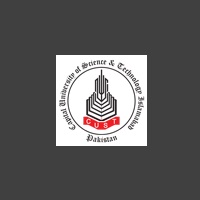
| QUALIFICATION | |||
| PhD | Management | University San Malaysia, Sarawak campus, Malaysia. | Continue |
| MPhil | Management Sciences (HRM) | Bahria University, Islamabad. | 2015 |
| MBA | Human Resource Management | NUST Business School, NUST, Islamabad. | 2013 |
| FIELD / COURSES | |||
| 1. | Business Communication | ||
| 2. | Principles of Management | ||
| 3. | Capital Structure and Models | ||
| 4. | Analysis of Financial Statements | ||
Other Members

Yasir Hussain
Lab Engineer

Samra Ghaffar
Associate Lecturer

Abdullah Numani
Associate Lecturer

Umar Maqbool
Assistant Professor

Umer Farooq Ahmed
Assistant Professor

Dr. Zeeshan Ahmed
Assistant Professor

Engr. S. Abaad ul Hassan
Lab Engineer

Engr. Sarmad Ali
Research Associate

Engr. M. Sameer Sajid
Lab Engineer

Tooba Masood
Lecturer

Dr. Waseem Abbass
Assistant Professor

Dr. Muhammad Riaz
Associate Professor

Danyal Javed Ratyal
Lab Engineer

Dr. Uzma Rani
Assistant Professor

Dr. Shafiq Ur Rehman
Assistant Professor

Ms. Asia Shahab
Lecturer

Ms. Mamoona Bilal
Associate Lecturer

Fahim Shahzad
Senior Lecturer

Aziya Mehboob
Lecturer

Qaisar Manzoor
Associate Lecturer

Itrat Fatima
Lecturer

Sundas Rana
Associate Lecturer

Engr. Huma Sheraz
Associate Lecturer

Dr. Sabeen Masood
Assistant Professor

Dr. M. Furqan
Assistant Professor

Mr. Muhammad Faran
Lab Engineer

Mr. Muhammad Iqbal
Senior Lecturer (Islamic Studies)

Mr. M. Nauman
Lecturer

Mr. Naveed Ahmed
Senior Lecturer

Mr. Naeemullah Khan
Assistant Professor

Ms. Rida Rafaqat
Lecturer

Mr. Waqar Younas
Lecturer

Mr. Azhar Rauf Khan
Lecturer

Ms. Ayyesha Kanwal
Senior Lecturer
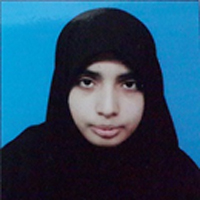
Ms. Zuriat Zahra
Senior Lecturer

Dr. Abid Kamran
Assistant Professor

Dr. Samina Rashid
Associate Professor

Dr. Dur e Shehwar
ASSOCIATE PROFESSOR

Dr. M. Afzal
ASSOCIATE PROFESSOR

Dr. M. Sabeel Khan
Associate Professor

Dr. A. Rehman Kashif
ASSOCIATE PROFESSOR

Dr. Rashid Ali
PROFESSOR

Dr. Muhammad Sagheer
PROFESSOR / HOD MATHEMATICS

Mr. Sadaqat Hussain
Lecturer

Ms. Sabiha Naureen
Associate Lecturer

Ms. Hafsa Jabeen
Associate Lecturer

Ms. Fiza Tahir
Lecturer

Ms. Farwa Zaid Ali
Associate Lecturer

Ms. Farwa Tahir
Associate Lecturer

Ms. Fareeha Hasan
Associate Lecturer

Ms. Asima Bibi
Associate Lecturer

Ms. Abeer Tariq
Associate Lecturer

Dr. Mahira Zeeshan
Assistant Professor

Ms. Taliha Ahmed
Associate Lecturer

Dr. Imran Riaz Malik
Associate Professor

Dr. S. Shujaa Safdar
Associate Professor

Ms. Shah Gull
Lecturer

Dr. Rizwan Ur Rehman
Assistant Professor

Dr. M. Asad Anwar
Assistant Professor

Ms. Ayesha Aftab
Associate Lecturer
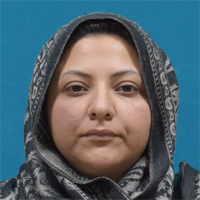
Ms. Yafra Khan
Lecturer

Ms. Snober Naseer
Associate Lecturer

Ms. Rida Haya
Associate Lecturer

Mr. Muhammad Owais
Lecturer
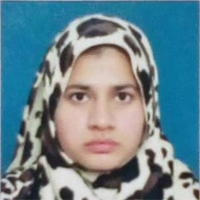
Ms. Iqra Javed
Associate Lecturer

Dr. S. Saqib Raza Rizvi
Assistant Professor

Mr. Adnan Jelani
Associate Lecturer

Dr. Iftikhar Ali Janjua
Assistant Professor

Ms. Javeria Khalid
Lecturer

Dr. Muazzam G. Sohail
Associate Professor
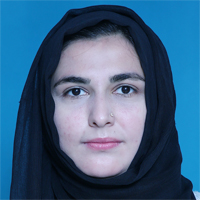
Ms. Sadaf Adalat
Lecturer

Mr. S. Faraz Ali Shah
Senior Lecturer

Mr. Imad-ud-Din
Lecturer

Ms. Aysha Aneeq
Lecturer

Ms. Sadaf Zeb
Senior Lecturer

Mr. Khuram S. Khalid
Senior Lecturer

Mr. M. Zeeshan Sabir
Lecturer

Mr. Hashim Ayub
Associate Lecturer

Mr. Sohail Riaz
Lecturer

Mr. Naseem Ali
Associate Lecturer

Mr. M. Majid Zaman
Associate Lecturer

Mr. Taimoor Riaz
Associate Lecturer

Ms. Tayyaba Zaheer
SENIOR Lecturer

Mr. Mudassar Adeel
LECTURER

Mr. Ibrar Arshad
Senior Lecturer

Ms. Anam Ijaz
Lecturer

Ms. Irum Noureen
Lecturer

Dr. Sania Riaz
Assistant Professor

Dr. Sami Ullah Jan
Senior Lecturer

Mr. M. Waqas Malik
Lecturer

Dr. Ghulam Asghar
Assistant Professor

Mr. M. Aneeb Fazal
Lecturer

Ms. Faiza Arshad
Lecturer

Ms. Asma Qandeel
Lecturer
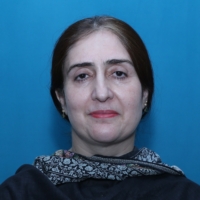
Ms. Uzma Arshad
Senior Lecturer

Mr. Syed Awais Haider
Senior Lecturer

Mr. Salman Ahmed
Senior Lecturer

Mr. Bilal Ahmad
Senior Lecturer

Ms. Asma Naz
LECTURER

Mr. Shahzad Rafique
ASSISTANT PROFESSOR

Dr. M. Siraj Rathore
Assistant Professor

Dr. Nadeem Anjum
Professor/HoD Software Engineering

Dr. M. Masroor Ahmed
PROFESSOR

Ms. Nitasha Gohar
Senior Lecturer

Mr. M. Zulfiqar
Lecturer

Mr. M. Haroon
Associate Lecturer
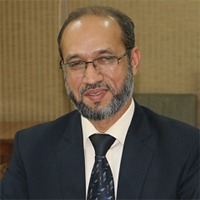
Dr. M. Umar Farooq
Professor/HoD English

Mr. Minhas Shah
LAB ENGINEER

Dr. Sohail Ahmad Jan
ASSISTANT PROFESSOR

Ms. Uzma Mushtaq
LECTURER

Mr. Manzar Masud
LECTURER

Mr. Ahmed Ali
LAB ENGINEER

Dr. M. Javed Hyder
PROFESSOR

Mr. Shaheed Ullah
Lecturer

Mr. M. Rizwan Siddiqui
Lecturer
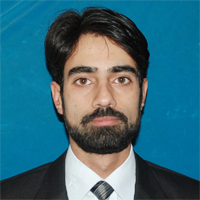
Mr. Talha Bin Tahir
Lecturer

Dr. Ishrat Yousaf
Assistant Professor

Mr. M. Irfan Mustafa
Lecturer

Dr. Shazia Faiz
Assistant Professor

Dr. Sabahat Haqqani
ASSOCIATE PROFESSOR / HOD PSYCHOLOGY

Mr. Talha Ahmed
Associate Lecturer

Mr. Muhammad Yasir
Lecturer

Mr. M. Waleed Farooq
Associate Lecturer

Mr. Mateen Abbas
Lecturer

Dr. M. Tariq Khan
Assistant Professor

Ms. Iqra Hamid
Lecturer

Mr. Asif Safdar
Lecturer

Dr. Nadia Shamshad
Associate Professor

Dr. Mahboob Alam
Professor

Dr. Muzaffar Abbas
PROFESSOR / DEAN FACULTY OF PHARMACY
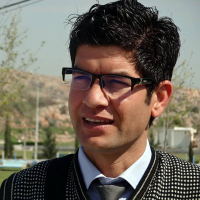
Mr. Maqsood Alam
Lecturer

Dr. Maria Mashkoor
Assistant Professor

Ms. Faiza Khalid
Lecturer

Mr. Iqbal Ahmad
Lecturer

Dr. Arshia Amin Butt
ASSISTANT PROFESSOR

Dr. Erum Dilshad
Associate Professor

Dr. S. Marriam Bakhtiar
ASSOCIATE PROFESSOR/ HoD BI & BS

Dr. Shaukat Iqbal
PROFESSOR

Dr. Sahar Fazal
Professor/Dean Faculty of Health & Life Sciences

Ms. Shummaila Rasheed
Lecturer

Mr. Khalid Mahmood
ASSISTANT PROFESSOR / DIRECTOR GRADUATE STUDIES

Dr. Muhammad Irfan
Associate Professor

Mr. Syed Hassan Shah
ASSISTANT PROFESSOR

Dr. Salman Sagheer
Associate Professor

Mr. Saif Ullah
ASSISTANT PROFESSOR

Dr. Abdul Basit Siddiqui
ASSOCIATE PROFESSOR / HOD COMPUTER SCIENCE

Dr. M. Mahabat Khan
ASSOCIATE PROFESSOR/HOD MECHANICAL ENGINEERING

Mr. Attabik Tabib
Associate Lecturer

Mr. Moin Qasim
Senior Lecturer

Dr. M. Naeem
Assistant Professor

Dr. M. Ashraf
PROFESSOR

Mr. Inam Elahi
Senior Lecturer

Dr. Amir Qayyum
PROFESSOR/DEAN EL & IC

Dr. Noor M. Khan
PROFESSOR / HOD ELECTRICAL ENGINEERING

Mr. Hafiz M. Adnan
Senior Lecturer

Dr. Zia ul Islam
Senior Lecturer

Mr. M. Umar Toor
Senior Lecturer

Ms. Rabia Habib
Senior Lecturer

Dr. M. Saboor Ahmed
Assistant Professor

Ms. Saeeda Ibrahim
Senior Lecturer

Mr. Nasir Rasool
ASSISTANT PROFESSOR

Dr. Ahsan M. Ahmed
ASSISTANT PROFESSOR

Dr. M. Ishfaq Khan
Associate Professor

Dr. Jaleel Ahmed Malik
ASSOCIATE PROFESSOR/HoD Accounting and Finance

Dr. Imtiaz Ahmad Taj
PROFESSOR / DEAN FACULTY OF ENGINEERING

Dr. M. Mansoor Ahmed
PROFESSOR / VICE CHANCELLOR

Dr. S. M. Mehdi Raza
Professor/HoD Management Sciences

Dr. Ansir A. Rajput
PROFESSOR

Mr. Sohail Afzal
ASSOCIATE LECTURER

Dr. Aamer Nadeem
PROFESSOR

Dr. Arshad Hassan
PROFESSOR / DEAN FACULTY OF MANAGEMENT AND SOCIAL SCIENCES

Dr. Nayyer Masood
PROFESSOR

Dr. M Abdul Qadir
PROFESSOR / DEAN FACULTY OF COMPUTING

Dr. M. Usman Farooqi
ASSISTANT PROFESSOR

Dr. Majid Ali
Professor

Dr. Ishtiaq Hassan
Professor/HoD Civil Engineering

Mr. Hassan Mahmood Awan
Controller of Examinations

